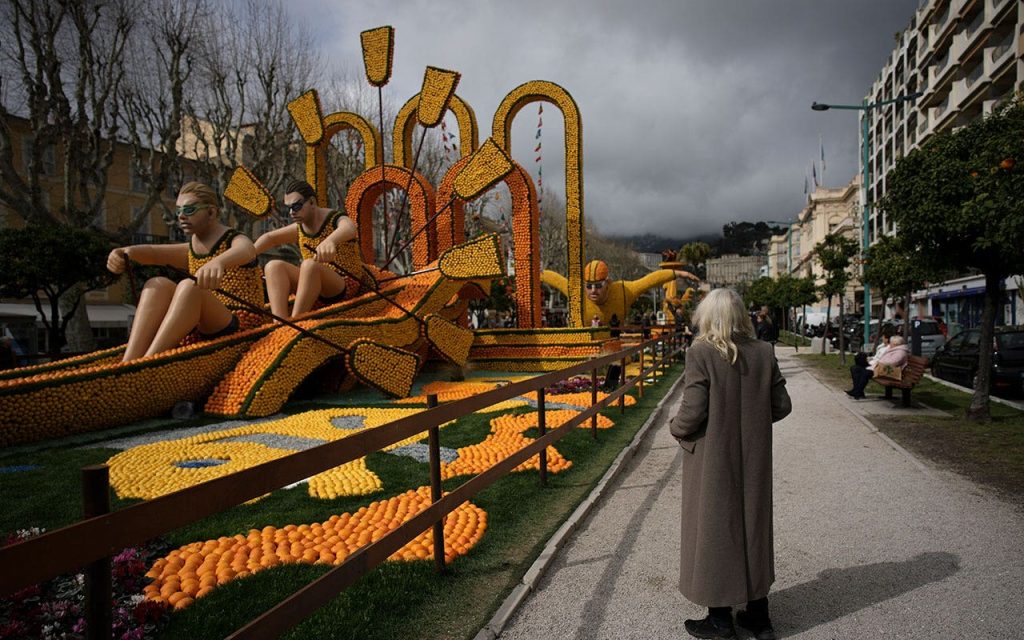The French lemon festival gathers over 140 tons of citrus for elaborate floats and displays. This festival is held in the town of Menton, which was once a leading lemon-growing region in Europe. However, the prized Menton lemons, which were favored by King Louis XIV, are no longer plentiful due to factors like land development and a warming climate. Only 56 small producers now grow the high-end lemons. The region’s annual lemon production, which used to be about a ton and a half every 20 days, has now dropped to about 200 tons per year.
Pierre Ciabaud, a sixth-generation lemon-grower, remembers when the valleys of Menton were covered in lemon groves. Since then, many of these groves have been replaced by buildings due to land development. The Menton lemon’s distinct flavor, attributed to the region’s mild climate, soil, and other factors, has gained popularity, with celebrity chef Mauro Colagreco using it in his dishes. The European Union granted the Menton lemon a geographical indicator in 2015 to protect its name and help with marketing.
Several challenges face the remaining lemon growers in Menton, including land development, climate change, and the difficulty of making a living from lemon farming. Young people today may struggle to support themselves with lemon farming as their ancestors did. Farmers like Laurent Gannac have benefited from the geographical indicator, but worry about climate change affecting their crop in the future. In order to continue producing lemons, farmers will need to adapt to rising temperatures and changing weather patterns.
The lemon festival in Menton continues to attract thousands of visitors each year, despite the scarcity of Menton lemons on display. While attendees are unable to taste the prized lemons during the festival, the hope is that the lemons will be enjoyed in gourmet dishes at restaurants and in high-quality jams. The Fete du Citron showcases the beauty and craftsmanship of lemon displays, but the true value of the Menton lemon lies in its unique flavor and scent, which can only be appreciated through tasting.
The decline of the Menton lemon and its cultivation in the region are attributed to various factors, including the cancellation of laws protecting the region from competition, the rise of tourism leading to land development, and a warming climate. This decline has led to fewer lemon growers in the region and challenges for those who continue to cultivate the high-end lemons. Despite these challenges, farmers like Pierre Ciabaud and Laurent Gannac are committed to preserving the tradition of growing Menton lemons and adapting to ensure the survival of the crop in the face of changing environmental conditions.
As the region of Menton grapples with the impact of climate change on its lemon production, the future of the Menton lemon remains uncertain. While the geographical indicator provides some protection and marketing benefits for the prized lemons, farmers must also consider how to adapt their practices to ensure the survival of the crop. The unique flavor and scent of the Menton lemon, along with its historical significance, make it a valuable and sought-after fruit. Farmers and enthusiasts alike continue to work towards preserving and promoting the Menton lemon, despite the challenges they face.


